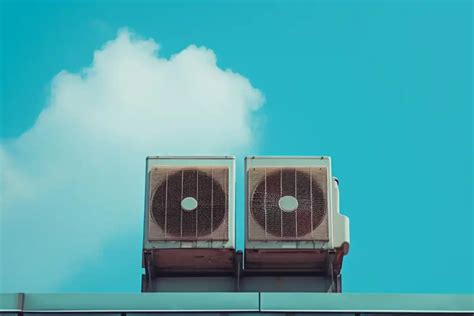The Science Behind AC Vacuuming and Why It's Essential
Air conditioning (AC) systems are vital for maintaining comfortable indoor temperatures, but their efficiency and longevity depend heavily on proper maintenance. One often-overlooked yet crucial aspect of this maintenance is vacuuming the AC unit. This seemingly simple task involves much more than just surface cleaning; it's a critical step in optimizing performance and preventing costly repairs. This article delves into the science behind AC vacuuming, explaining why it's essential for both residential and commercial systems.
What Happens When You Vacuum Your AC Unit?
Vacuuming your AC unit, specifically the condenser coils, removes dust, dirt, leaves, and other debris that accumulate over time. This buildup acts as an insulator, hindering the efficient transfer of heat from inside your home to the outside environment. The condenser coils release heat, and if they are coated in debris, they can’t do this effectively. This leads to several problems.
Why is AC Vacuuming Important? (Addressing PAA Questions)
Here, we address some frequently asked questions surrounding AC vacuuming:
How often should I vacuum my AC unit?
The frequency of vacuuming your AC unit depends on several factors, including the environment (e.g., proximity to trees, dusty surroundings), the type of unit, and its usage. However, a good rule of thumb is to vacuum the condenser coils at least once a year, preferably before the start of the cooling season. In particularly dusty or dirty environments, more frequent cleaning, perhaps every few months, may be necessary.
What are the benefits of vacuuming my AC unit?
Vacuuming your AC unit offers numerous benefits, including:
-
Improved Energy Efficiency: Removing debris from the condenser coils allows for optimal heat dissipation, reducing the strain on the compressor and lowering your energy bills. A clean unit can significantly improve your system's SEER (Seasonal Energy Efficiency Ratio).
-
Extended Lifespan: Reduced strain on the components leads to a longer lifespan for your AC system, delaying the need for costly replacements or repairs.
-
Enhanced Cooling Performance: A clean condenser coil enables the system to cool your home more effectively and reach the desired temperature more quickly.
-
Reduced Risk of Malfunctions: Buildup of debris can lead to overheating, which can damage the compressor and other vital components. Regular vacuuming minimizes this risk.
-
Improved Air Quality (Indirectly): While vacuuming the unit itself doesn't directly filter the air, a well-maintained system contributes to better overall indoor air quality by functioning more efficiently.
Can I vacuum my AC unit myself, or should I call a professional?
While vacuuming the condenser coils is a relatively straightforward task, it's crucial to be cautious. Improper cleaning can damage the delicate fins of the coil. If you're unsure, calling a professional HVAC technician is always recommended. They possess the expertise and tools to clean the unit thoroughly without causing any damage. However, for basic exterior cleaning of the condenser unit, using a soft brush and a vacuum with a brush attachment can be sufficient for many homeowners.
What tools do I need to vacuum my AC unit?
For DIY cleaning, you'll need a vacuum cleaner with a brush attachment, a soft-bristled brush (to gently dislodge debris before vacuuming), and possibly a coil cleaning solution (but this is usually only necessary for more stubborn buildup). Always disconnect the power to the unit before starting any cleaning process.
What are the signs that my AC unit needs vacuuming?
Signs your AC unit needs vacuuming include:
- Reduced Cooling Capacity: Your home isn't cooling down as efficiently as it used to.
- Increased Energy Bills: Your electricity costs have gone up inexplicably.
- Compressor Running Constantly: The compressor works continuously to try and compensate for the reduced efficiency.
- Unusual Noises: Rattling or unusual sounds from the unit could indicate a problem exacerbated by debris buildup.
The Science Behind the Inefficiency: Heat Transfer and Conduction
The core principle at play here is heat transfer. A clean condenser coil allows for efficient heat transfer through convection and conduction. The hot refrigerant gas inside the coil releases heat to the surrounding air. However, a layer of dust and debris acts as an insulator, reducing the rate of heat transfer. This forces the system to work harder to achieve the same cooling effect, leading to reduced efficiency and increased energy consumption. Regular vacuuming ensures optimal heat transfer, maximizing the efficiency and lifespan of your AC system.
Conclusion: Prioritize Proactive Maintenance
Vacuuming your AC unit isn't just a good idea; it's a crucial aspect of proactive maintenance that ensures optimal performance, extends the system's lifespan, and ultimately saves you money. While you might be able to handle basic cleaning, don't hesitate to call a professional for more thorough service. This simple act can make a significant difference in your comfort and your wallet.

